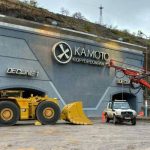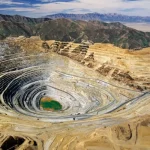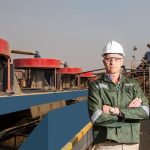During one of his many visits to the Democratic Republic of the Congo, Siddharth Kara, an author and Harvard academic who has spent 20 years researching modern slavery, met a young woman sifting dirt for traces of cobalt.
Priscille told him she had suffered two miscarriages and that her husband, a fellow “artisanal” miner, died of a respiratory disease. “I thank God for taking my babies,” she said. “Here it is better not to be born.”
It is just one of many devastating personal accounts in Cobalt Red, a detailed exposé into the hidden world of small-scale cobalt mining in the Democratic Republic of the Congo (DRC).
The “quaint” moniker of artisanal mining, Mr Kara points out, belies a brutal industry where hundreds of thousands of men, women and children dig with bare hands and basic tools in toxic, perilous pits, eking out an existence on the bottom rung of the global supply chain.
Recommended
Revealed: The 50 areas in the UK most likely to perish because of climate change
Madagascar, Mozambique set for “dangerous” Cyclone
Freddy
The miners are the first step in the race for precious metals and minerals by some of the world’s most powerful companies, with multibillion-dollar valuations and whose founders and CEOs are household names.
If you own a smartphone, tablet, laptop, e-scooter, electric vehicle (or all of the above), then it is a system in which you are unwittingly complicit.
“At no point in human history has so much suffering generated so much profit and been directly linked to the lives of billions of people around the world,” Mr Kara writes in the book.
A young boy carries a sack at a small-scale cobalt mining site in the Democratic Republic of the Congo
(Siddharth Kara)
Around 75 per cent of the world’s cobalt is mined in the DRC — and the world cannot get enough of it. The rare, silvery metal is an essential component to every lithium-ion rechargeable battery, a necessary part of the booming electric vehicle (EV) industry.
The number of EVs are increasing exponentially as most high-polluting economies have made them integral to decarbonising emissions-heavy transport sectors.















